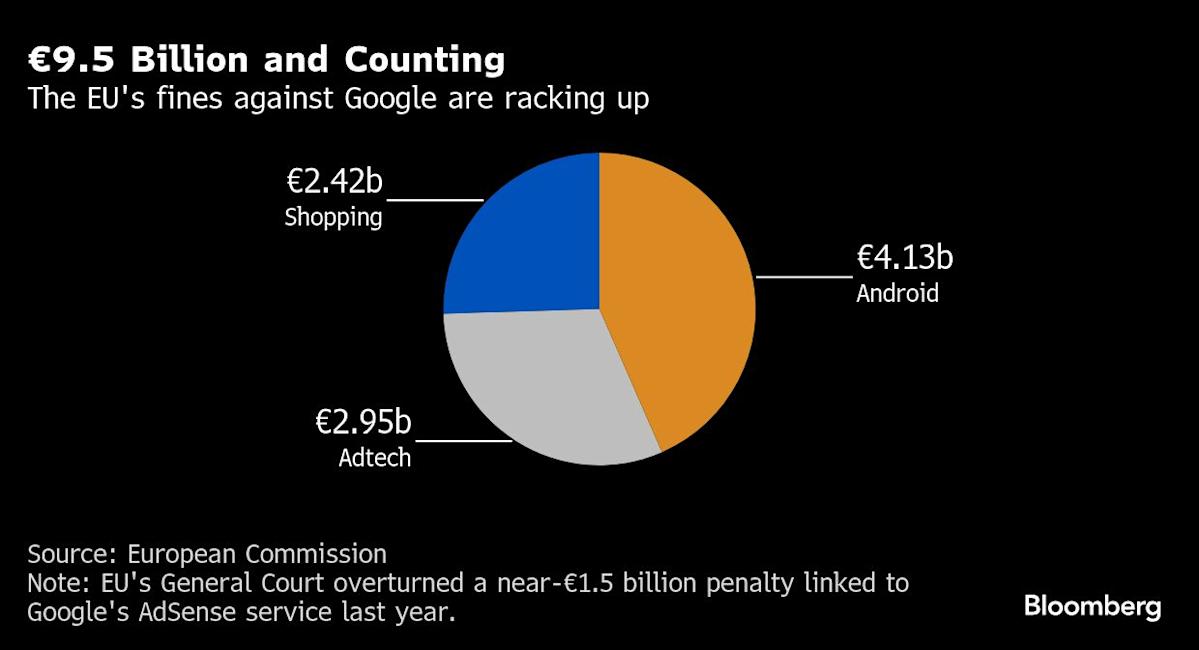(Bloomberg) — The European Union’s antitrust chief ruled out easing the bloc’s tech rulebook, after US Commerce Secretary Howard Lutnick said Brussels needed to change its digital regulations in order to get a deal to lower steel and aluminum tariffs.
Lutnick said in an interview with Bloomberg on Monday that the US would grant the EU a “cool steel and aluminum” agreement in exchange for rolling back its tech rules. The US imposes a 50% levy on European imports of the metals.
Most Read from Bloomberg
“The European digital rulebook is not up for negotiation,” Teresa Ribera, a vice president at the European Commission, said in a statement late Monday. “We, Europeans, have adopted our rules to ensure fair markets and to protect consumers rights while securing Europe’s digital future.”
Lutnick’s direct linkage between steel duties and tech rules puts the EU in a difficult position as it struggles to win tariff exemptions from the US. President Donald Trump has chided the EU — which he has said was created to “screw” the US — over its trade surplus in goods and perceived barriers to American trade.
Commerce Secretary Howard Lutnick says the US has talked with the European Union about rolling back tech rules in exchange for “a cool steel and aluminum deal.” Lutnick discusses conditions for any steel, aluminum deal with the EU on “Bloomberg Surveillance.”Source: Bloomberg
Trump has specifically called out the EU’s digital regulations as the kind of non-tariff trade barrier that his so-called reciprocal tariffs are intended to target, with the White House signaling previous EU penalties as a form of duty.
Lutnick and US Trade Representative Jamieson Greer met with EU technology czar Henna Virkkunen earlier Monday to discuss digital regulations. Virkkunen stressed the importance of the bloc’s two central tech rulebooks, the Digital Services Act and the Digital Markets Act, which regulate online platforms and marketplaces, according to the European Commission.
Lutnick said the EU needed to resolve outstanding legal cases it’s taken against American tech giants, including Alphabet Inc.’s Google, Microsoft Corp. and Amazon.com Inc.
Despite Trump’s threats, the EU has pressed ahead with enforcement of its digital antitrust rules, with recent fines against Apple Inc. and Meta Platforms Inc. of €500 million ($576 million) and €200 million respectively.
Previously, the EU issued costly penalties against other firms, including more than $8 billion in fines against Alphabet Inc.’s Google and a separate order for Apple to pay Ireland back taxes of €13 billion. Those, however, were done under traditional competition law and not using the bloc’s Digital Markets Act.
Lutnick and Greer were in Brussels for their first official visit since the EU and US reached a trade deal in July. The deal set a 15% US tariff on many EU goods, while the EU pledged to remove tariffs on US industrial products as well as some agricultural and food items.
The EU is particularly concerned that the breadth of goods hit by the 50% metals rate — currently surpassing 400 items — as well as potential new, higher levies on different industries will dilute the EU-US trade deal and the agreed 15% tariff ceiling, Bloomberg reported earlier.
“The idea is if they take the foot off this regulatory framework and make it more inviting for our companies, they can get the benefit of hundreds of billions, possibly $1 trillion of investment,” Lutnick said.
After Monday’s meetings, EU trade chief Maros Sefcovic said he wanted to reassure Lutnick that the bloc’s digital rules “are not discriminatory” and “not aimed at US companies.”
“It’s our duty to preserve our values and to defend our people,” Ribera said.
Most Read from Bloomberg Businessweek
©2025 Bloomberg L.P.

